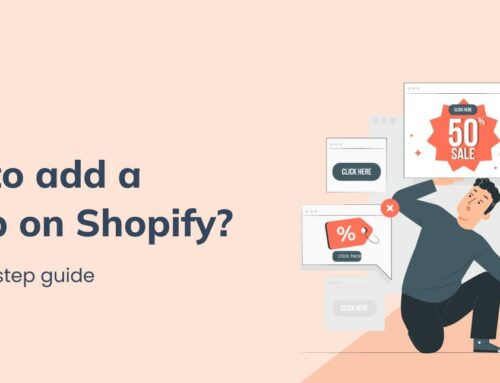Shopify is one of the top popular eCommerce platforms for building online stores. Around 1.7 million merchants worldwide utilize this eCommerce solution to empower their online businesses. In today’s fiercely competitive eCommerce industry, you must make your brand stand out from other rivals. Also, it is crucial to enhance your customers’ experience so that they choose your brand instead of the others. Shopify has already introduced Shopify Hydrogen – the future of headless commerce to help you solve this issue.
Shopify Hydrogen development enables store owners to provide their customers with dynamic customer experiences. Besides, it enables them to publish highly interactive user interfaces while powering their stores’ backend commerce features.
In this article, BSS Commerce will walk you through detailed information about Shopify Hydrogen – the latest Shopify storefront design solution. Scroll down to learn more!
Contents
What Is Shopify Hydrogen?

Source: Shopify
Shopify Hydrogen is a React-based framework announced at Unite 2021. Hydrogen offers businesses a set of specific commerce components, hooks, and utilities to build a custom storefront faster than ever before. This new technology lets business owners build Shopify headless commerce sites with a personalized and unique interface. You can personalize your Shopify hydrogen storefront without depending on outside systems, third-party integrations, or other technology. Moreover, as a fully open-source solution, you can set up your online store from scratch instead of being restricted to ready-made templates. Shopify Hydrogen discards all these difficulties and extra expenses associated with creating a Shopify headless store in the past.
If your eCommerce development team had to choose between lightning-fast site loads and intuitive user interfaces in the past, Shopify Hydrogen combines various technologies to create unique and dynamic experiences without sacrificing performance.
In short, Shopify Hydrogen is to simultaneously provide a speedy user experience, best-in-class merchant features, and a great developer experience.

Shopify Oxygen is a hosting platform that helps you host Hydrogen storefronts. Oxygen aims to help you keep your site performing well. It allows you to manage large traffic volumes for successful flash sales or social promotion campaigns.
Shopify Hydrogen and Oxygen enable merchants to build headless stores from zero inside the Shopify Plus infrastructure.
How Does Shopify Hydrogen Operate?
Shopify Hydrogen provides different eCommerce-specific components and developer tools that speed up the development process and create an intuitive and powerful website.
Any customers also expect a quick user experience that is personalized and contextual. Shopify Hydrogen does an excellent job building authentic and fast online commerce experiences.
Moreover, Shopify Hydrogen provides a Vite plugin that helps balance building custom storefronts and creating flawless purchasing experiences. It allows you to integrate data from outside sources as well. However, you must first convert the data from the third-party source into the formats accepted by Hydrogen’s components, hooks, and utilities.
Hydrogen coming with React Router enables dynamic routing to manage routes on your Shopify website. Besides, Shopify offers a starter template that allows you to launch your storefront in a few minutes. It helps you save a lot of time on scaffolding and configuration of the Shopify storefront design. Store owners can work with developers to speed up the building of storefronts by including all UI elements based on Shopify data models.
How Does Shopify Hydrogen Benefit Your Business?
Diverse design possibilities

Shopify Hydrogen separates the frontend and backend of an online store. Instead, the frontend and backend of your Shopify site communicate through API. Consequently, Shopify Hydrogen storefronts can unlock additional customization options because they can modify the interface without affecting the backend.
Thanks to the headless approach, Shopify Hydrogen gives you more design freedom and allows online stores to experiment with different layouts and content modifications. Shopify merchants without coding skills can easily drag and drop the layout from scratch or utilize preset templates and blocks to build pages. You can publish new UX/UI designs and give visitors a customized and engaging purchasing experience.
High performance
Shopify Hydrogen adopts a headless approach. Headless commerce has the infrastructure that separates the frontend and backend of your online store. As a result, merchants gain the ability to access a fast-speed page while still keeping all dynamic content and backend functionality. By doing that, you can delight any clients and customers visiting your store. Thereby, you can increase organic traffic and stimulate them to register on your web.
Hydrogen employs extremely little JavaScript and separate client and server components. Thus, it significantly decreases the bandwidth required to load a website. By separating the frontend from its backend, you can decrease your page load speed from a few seconds to milliseconds.
As a result, there is inevitably a considerable improvement in your website’s Core Web Vitals and possibly even an increase in search engine ranks.
Better customization
Personalized experience helps boost revenue, average order value, and retain clients. Shopify Hydrogen makes it easier to create and host customized shops. Developers can stop worrying about the complex customizations required and focus on creating retail experiences instead.
Online businesses can create storefronts with dynamic content and tailor the online purchasing experience for customers by using Hydrogen’s React-based framework. You can design blocks that provide product suggestions in response to customer feedback, previous purchases, or geographic location. Besides, you can offer targeted discounts to different groups of customers to give them an outstanding shopping experience.
Demo Shopify hydrogen template
Thanks to Hydrogen’s Demo Store template, it takes much less effort to build Shopify custom storefronts. With boilerplate code, a Demo Store template smoothly interacts with Shopify websites. In addition, it provides a full shopping experience straight out of the box.
The Shopify Hydrogen framework and the Tailwind CSS utility package allow you to style the Demo Store template. With default tail-wind, you can reuse elements created with a specific objective in mind, like a PDP, on different web pages or your blog page, without modifying the CSS classes. You can either design your style or utilize Tailwind’s library.
Fast development process
With ready-to-use parts, hooks, and utilities based on Shopify data models, Shopify Hydrogen streamlines the development process.
Hydrogen takes advantage of Shopify’s foundational tech stack and commerce capabilities to speed up front-end development. It collaborates closely with the Storefront API to deliver quick data retrieval. Shopify-specific components, hooks, and commerce tools included in Hydrogen are simple and ready to use. However, it still provides merchants with limitless design options by employing the fundamental framework and ready-to-use UI components. Moreover, Shopify Hydrogen reduces the complexity of third-party integrations and software for creating a bespoke storefront.
In conclusion, Shopify Hydrogen is the best tool for Shopify stores to implement the best headless commerce approach.
Hydrogen support community

Shopify Hydrogen is a public open-source project that allows external contributions from outside developers and evolves based on them. Developers can give feedback via discussions and issues through Shopify’s initial routing strategy. The agreed contributions will be aligned on its caching API.
With this open strategy, Shopify learned that developers urged them to use TypeScript in their demo store templates. And they did it to enhance the developer experience. Shopify wants the eCommerce development community to aid in the creation of Hydrogen. If you have a skilled in-house development team working on this, you can help Shopify shape the framework and tools.
SEO friendliness

You can effectively optimize your store for search engines with the help of Hydrogen’s SEO tools. Hydrogen comes with pre-built SEO enhancements like a robots.txt file that can be customized automatically to create a sitemap and metadata values for each page. To populate SEO data on a web page, Hydrogen relies on the SEO component. This Primitive shared component renders on both the client and server sides.
A look at Top best Shopify SEO Apps for 2024
Hydrogen stands out for adapting its page rendering method based on the user agent. The user-agent request header is examined by Hydrogen. Shopify Hydrogen buffers the response when it identifies the user agent as a search engine robot. This means that before sending the content to the search engine bot, it populates the content on the server.
Some Drawbacks Of Shopify Hydrogen
Developer-heavy workflow
Everything in Hydrogen needs to be carried out and maintained by developers. There’s no short or long-term drag-and-drop tooling available. Hence, this solution may be best for businesses with available developer resources. Unfortunately, this means your non-technical team members won’t have access to the frontend layer of the site to make changes.
The Hydrogen framework relies heavily on code. Hence, you should work with a reliable Shopify service provider like BSS Shopify Commerce that might help you solve any problems.
App integrations
The Shopify ecosystem for third-party apps is still in its early development stage. For the time being, not all applications have APIs. Shopify has some of its most popular apps ready to be easily integrated with the Hydrogen framework. However, anything you create won’t be right away compatible with the Shopify app store. You’ll have to link it yourself via middleware.
Shopify Integrations – ways to to define workflow, integrate systems and sync data across all channels
Uses React server components
Because Hydrogen employs React server components, the final output will not be a static progressive web application (PWA). The Shopify server will require code to be written by your programmers. As a side note, React Server components are highly popular and novel. It could be considered a “beta” version. Although it’s a fantastic idea, most developers haven’t adopted it yet.
Shopify Hydrogen won’t be replacing Liquid anytime soon

Source: Shopify
Shopify themes have recently attracted a lot of investment from merchants. Then Shopify shifts its attention away from Shopify Liquid themes and the currently served non-technical audience. Hydrogen will take more time to catch up to Liquid.
Only available in developer preview
Shopify claimed that the developer preview of Hydrogen is available. As a result, Shopify developers can build “headless” stores. Developers can manage products, reviews, and blog posts on any screen or device using the headless stores’ API. Also, they can use the content with whichever framework they choose.
Thus, if you do not develop your store preview, you won’t be able to see a real-time preview of the Hydrogen-powered store you’re building. The non-technical members of your eCommerce team may find it challenging to execute due to this.
Shopify Plus Headless: What Makes It The Best Headless Commerce Solution
What Is New About Shopify Hydrogen In 2023?
Shopify is just getting started with Hydrogen. Shopify is constantly working to minimize its weaknesses and provide frequent updates. They will launch a new server component design, a new Hydrogen router, and ways to gradually transition from an existing Liquid storefront.
Moreover, Hydrogen will also be further integrated with the rest of the Shopify ecosystem. In 2023, Shopify users received some good news from Hydrogen. Let’s check it out now!
CMS preferred partners
Sanity and Contentful are Shopify’s preferred CMS choices.

Source: Sanity
Businesses must develop engaging and helpful content to attract and keep customers. Thus, Shopify and Sanity have partnered strategically. They are achieving seamless integrations in the headless approach to developing extraordinary customer experiences. Sanity also released its first and only Shopify integration named Sanity Connect on the Hydrogen app store. This integration combines the strength of Shopify and Sanity to create fantastic shoppable experiences. Thus, merchants will be able to maintain synchronization between their Sanity CMS and Shopify frontend for their goods, variants, and collections. Shopify stores should utilize the Sanity Connect app to connect commerce and content, promote your brand, and leave a memorable impression on customers.
Contentful comes up as the second preferred CMS partner of Shopify. It is one of the CMS technologies with the fastest growth rates currently on the market. As a result of their API-first strategy, brand content, including articles and product details, can be accurately translated and updated in real time wherever you sell your items. Using Hydrogen & Oxygen with a trusted partner like Contentful builds a robust stack for any brand.
Shopify API updates
Hydrogen was solely developed for the Shopify API. Thus, its components strongly tie with certain factors of Shopify’s API. Furthermore, Hydrogen can only support building Shopify storefronts. Thus, it does not support other bespoke storefronts such as mobile apps.
Fortunately, Shopify has upgraded its API to support the new framework. The storefront-API has not yet been suitable for server-side applications. This can expose a merchant to exceeding the rate limit, which would affect the general usability of your website. This updated version opens up server-side operations that were previously too risky by enabling the server to send requests on the merchant’s behalf. In other words, they can serve multiple users without reaching a limit.
Shopify Plus API – How it can amplify your eCommerce journey?
Shopify hydrogen’ apps integrations
In 2021, the Shopify ecosystem for third-party apps was still in its early development stage. At that time, not all applications had APIs. Shopify had some of its most popular apps ready to be easily integrated with the Hydrogen framework.
Since then, Shopify has released a list of essential tech stack components ready to be incorporated into Hydrogen immediately, ensuring that merchants won’t have to give up their favored tech solutions.
Shopify hydrogen remix
Shopify Hydrogen Remix is a new way of building fast and dynamic e-commerce storefronts using Shopify’s headless commerce framework and Remix’s full stack web framework. Here are some highlights about Shopify Hydrogen Remix:
- It allows you to create a custom and performance online store that meets your specific needs and preferences, without compromising on SEO, accessibility, or security.
- It leverages the power and flexibility of React, TypeScript, and GraphQL to provide a developer-friendly and productive environment for building web applications.
- It uses pre-built components and hooks that make it easy to fetch data from Shopify, display products and collections, add cart and checkout functionality, and more.
- It integrates seamlessly with Shopify’s ecosystem of apps and platforms, such as Shopify Payments, Shopify Admin, Shopify App Store, Shopify Theme Store, and Shopify Partners.
- It supports various hosting options, such as Oxygen (Shopify’s own hosting service), Vercel, Netlify, or any other serverless platform.
Shopify Hydrogen – The Solution To Tomorrow’s eCommerce

Headless commerce is predicted to be the future of eCommerce retail. The industry will leave you behind if you do not adopt this cutting-edge approach. Headless commerce empowers business owners to provide modern innovation and experience through separate frontend and backend processes, relying on low- or no-code expertise.
Even though there are numerous approaches to deploying headless commerce, Shopify Hydrogen is a significant step toward a future of headless commerce. Hence, we can also expect a lot more from this solution. It will take quite a long period until it completely replaces Liquid. However, you ought to update technological advances to have an advantage over your competitors.
For brands, headless will provide new opportunities to iterate and respond to changing demands more quickly, thereby boosting their conversion rates. As a headless framework, Shopify Hydrogen will help build faster and richer experiences for merchants. In the future, Shopify will perform better in providing upper merchant capabilities, responsive and fast-loading websites, and an excellent developer experience. Moreover, a leading eCommerce platform like Shopify introducing this novel approach to headless for its merchants will directly influence how companies set up their eCommerce stores in the future.
Headless Commerce Vs Traditional Commerce: Which One Is Fit For You?
In Conclusion
For online shops, Shopify Hydrogen provides a whole new universe of opportunities. It offers endless design options, quicker store loading times, and the capacity to customize shopping journeys. However, to fully utilize its potential, you must find a suitable development team.
Fortunately, BSS Commerce provides excellent Shopify development services. We have completed hundreds of Shopify projects and helped many Shopify stores to thrive. Hence, we are confident to help you build an online store with dynamic experiences and lightning web speed. Contact us and talk with our expert now! They will show you the path you should follow with Shopify!





